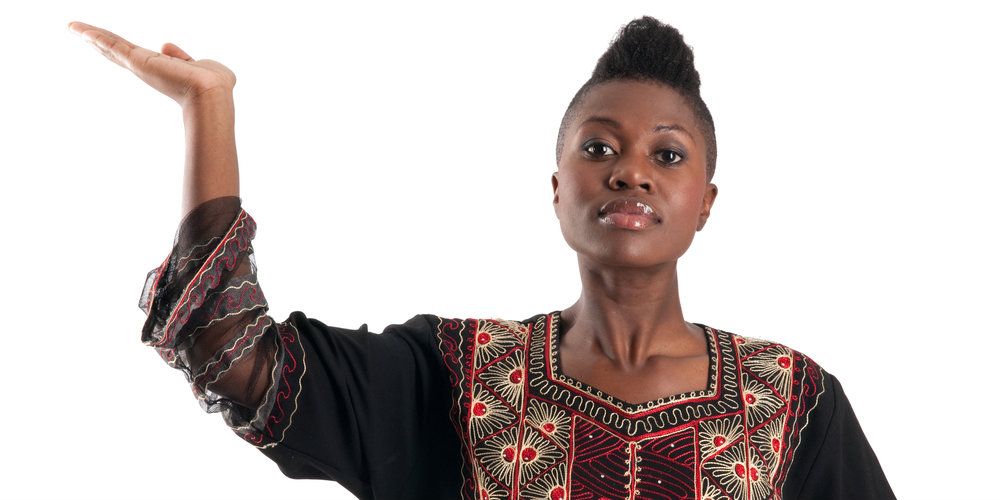Negotiating Black Female Sexuality in the Black Church

by Olivia Smarr
When I was five years old, I joined the new Youth Liturgical Dance Ministry at my church. In the dance ministry we explored how to use our bodies to serve the Lord and minister to the congregation. However, there were some rules involved. Most of the movements we did solely involved arms, hands, or legs—no torso or hip movements because they could be perceived as sexual. We were also restricted in our appearance. Our ministry garments were loose and oversized so that no figure could be discerned underneath. We wore pants under the skirts and dresses that we danced in and a full unitard under all of that. The only parts of our bodies exposed were our heads, hands, and feet. These guidelines were all intended to prevent our bodies from distracting from the message of the Gospel we were supposed to be sharing.
Although these guidelines might seem typical of white Evangelical “modesty culture,” there was a slightly different context in this case. My church was African Methodist Episcopalian—a denomination founded by freed slaves. Most of the members of my church were Black and so were the women of the dance ministry. Thus, the form of “modesty culture” exhibited by the dance ministry was not just about shaming women, but critiquing the bodies of Black women in particular. In the Black Church, traditional Christian doctrine comes up against the sexual politics surrounding Black bodies. Black bodies have historically been exoticized and sexualized, putting them in direct opposition to the Eurocentric standards of purity that persist in the tradition of the Protestant Christian church. The hypersexualization of Black women dates back to European exploration of the African continent hundreds of years ago. Europeans viewed Black bodies as deviant and fetishized them. During slavery in the U.S., White slave owners thought Black women were incapable of not wanting sex. They were assumed to be always promiscuous, and were therefore routinely raped and sexually abused. Because Black bodies are always seen as sexual, Black women have to work extra hard in order to be seen as “pure”.
Because we’ve been subconsciously perceived as hypersexual and promiscuous for so long sometimes we try to completely remove ourselves from sexual pleasure in order to not fit that stereotype. We don’t talk about pleasure openly. We don’t teach our youth about it. We caution against pregnancy, against dressing a certain way, against hanging out with a certain group of people, against listening to certain music in order to appear as though we are not sexual beings. But we are. And sexuality is something to be embraced, not shamed. However, we are in a difficult position. How do we, as Black Christian women, embrace our sexuality in a Christian culture that demonizes our bodies and views us as impure because of our shape and the color of our skin? How do we do so without fitting the hypersexualized stereotype society has for us? I don’t have easy answers for those questions, but I think it is time that we begin to shift the rhetoric around sexuality in the Black church, especially pertaining to women.
When I have children, I will teach them that sexuality is a gift from God. That the color of their skin does not make them less holy than other people, that the shape of their hips or the girth of their backsides is not something they should be ashamed about. I will teach them that sexual pleasure is something that is available to all of us and that it is a great thing to experience. I will teach them to happily and unapologetically embrace both their spirituality and sexuality. I will speak candidly with them about sexuality and explain to them that their bodies do not have to be at odds with their faith. These are things I wish I had learned as a young woman growing up in the Black Church.
Over time I have had to unlearn the sexual shame that plagued my childhood and teenage years while I was growing up as a young Black woman in the church. I now see my body and my sexuality as something that is beautiful, as something designed by God to enjoy. I do not think that my life as a spiritual being is different from my life as a sexual being. I believe that the identities are integrated, and I don’t have to choose between the two.
Photo Credit: Shutterstock

No comments: